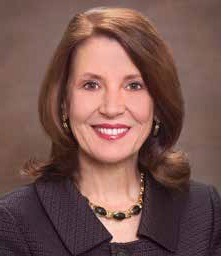por
John W. Mitchell, Senior Correspondent | April 27, 2015
From the April 2015 issue of HealthCare Business News magazine
HealthCare Business News spoke with Fontenot about her background, the challenges her hospital faces and the opportunities the future holds.
HCBN: How did you get your start in health care?
TF: I had an accounting degree, was pursuing a CPA credential, and was working as a comptroller for a building products company in 1982. One day, the computer salesman was in the office and encouraged me to apply for the comptroller position that was becoming vacant at the local hospital. I had never considered a career in health care, and didn’t even know where the hospital was located, but I was fortunate enough to be hired by Sister Anne Marie Twohig, the administrator. She wanted a professional accountant due to the risk being shifted to hospitals through the prospective payment methodology that was being implemented by Medicare. I didn’t know anything about health care, but she said “I need someone who knows accounting – I can teach you about health care.” And she did – she was a wonderful mentor.
HCBN: What makes Woman’s Hospital unique?
TF: We believe Woman’s is the only independent, nonprofit women’s specialty hospital in the country. Twenty years ago there were several, but they have all since joined systems. As a regional provider of specialized services for women and infants, we are a statewide resource. Woman’s was founded as a specialty hospital 58 years ago by 21 OB/GYNs who raised funds and each signed a personal note of $30,000 to guarantee the debt to build the hospital, which opened in 1968. Most of our medical staff are OB/GYNs who are in private practice. In 2012, we relocated to a new, much larger facility. Woman’s delivers nearly 9,000 babies a year – 80 percent of the babies born in our region – performs 46,000 mammograms and will process 80,000 pap smears in 2015. The ED is staffed with OB/GYNs, the NICU has 72 beds, and we are collaborating with local providers on a comprehensive women’s cancer center on our campus to complement existing oncology services and improve access and convenience for patients.
HCBN: What is the hospital’s biggest challenge?
TF: I’d say our biggest challenge is transforming care and creating a call to action in light of our current success. We must have a sense of urgency about change. The design and construction of the new campus consumed seven years of our attention, so we are now focusing intensely on the long-term implications from the Affordable Care Act. Similar to the transformation, and risk that hospitals assumed when DRGs went in effect in the 1980s, hospitals are now assuming even more risk with population health management. Integration of clinical information from all caregivers and eliminating fragmentation will be key. We must educate physicians on the need to share clinical information and focus on outcomes. In our current environment where success already exists, challenging the status quo is difficult
